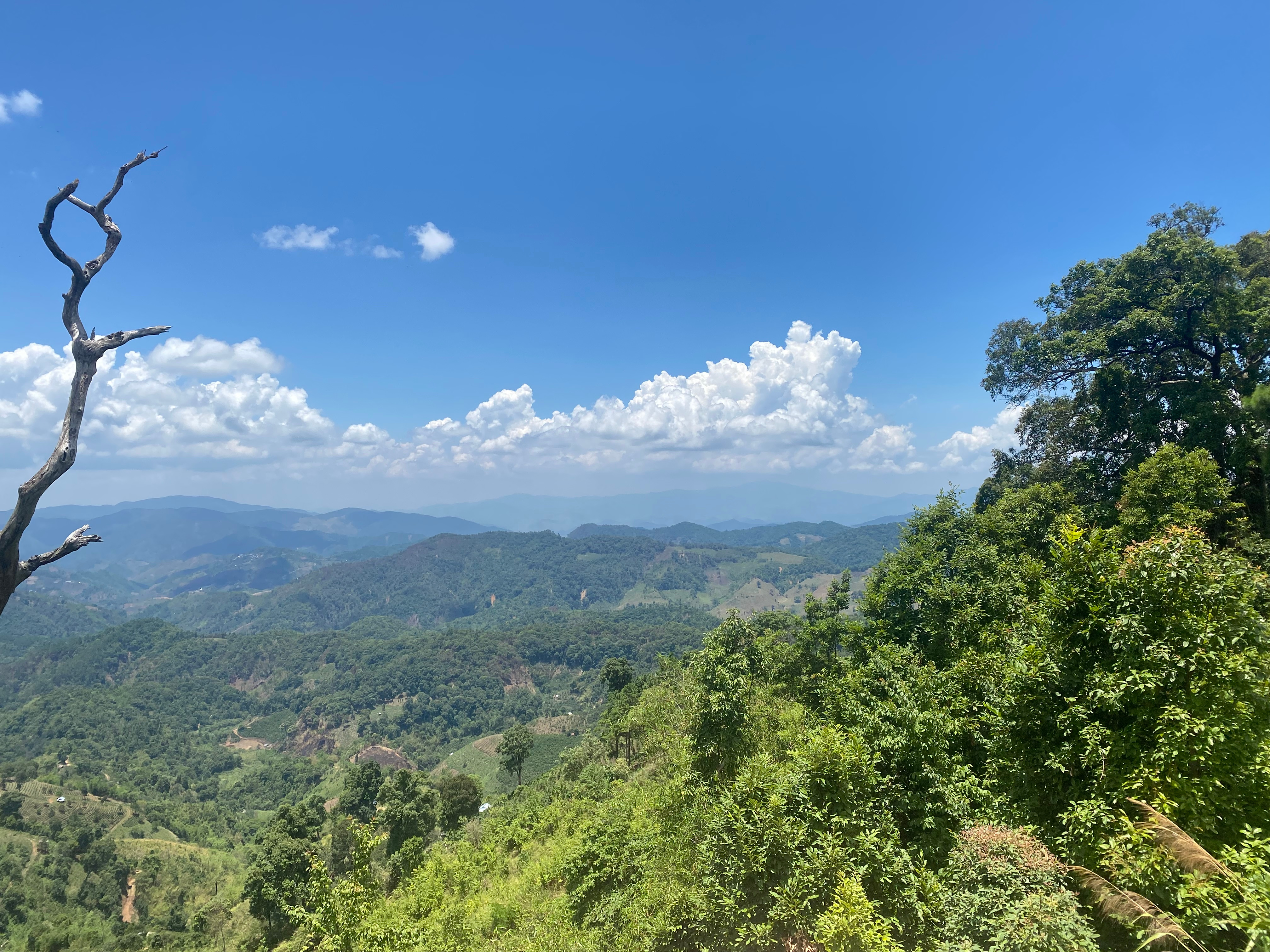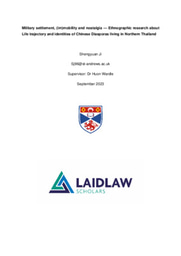Navigating the challenging environment with mental resilience—some reflections about my Laidlaw field research

(The photo I took on the first day of my research about my field site)
Navigating the challenging physical environment with mental resilience—some reflections about my Laidlaw field research
I still remember the time when I attended the interview of laidlaw scholar, the first question I got is to offer my own definition about resilience. To be honest, as a non-native speaker, I cannot remember the exact definition about the term then I just gave a very vague answer which define resilience as self-development. It was a surprise to me that I was still offered a place of laidlaw scholarship after providing a terrible answer in my interview. However my field research experience this summer enables me rethinking about the concept of resilience which helps me to self-develop in this journey.
To briefly present my project, it is an ethnographic field research about the life trajectories of Chinese diasporas living there and takes place in Northern Thailand. Since the first day arriving at the field site, I was shocked by its challenging environment. There was a heavy rain nearly twice a day and sometimes rain would lead to power cut. Doing field research under such conditions is a difficult thing. Unexpected rain can suddenly change every part of your plan. For instance, during the first few weeks of my first research, I often got stuck in the mountain because rain made my way back much more difficult. Moreover, sudden power cut can cause me to loss internet connection, that would prevent me to have online meeting with my supervisor. Such changes brought to me some mental pressure. I doubted a lot on if I am capable to gather enough data for my final report. Transport issues forced me to give up some plans on navigating around the region. I have not been living in the countryside for such a long time. Weather is not the only part that impacts my research. My lack of experience in living with insects is also becoming a big challenge to me. I never saw that many wild bees in my life. They seems much more aggressive than bees living in urban areas. I have been bitten twice by them on my way to my field site. Loneliness is another issue that I have in my field research.
On the other hand, those challenges also provides me an opportunity to self-develop. The ALS (academic learning set) has helped me to reach some other members in my cohort and fortunately I received so many useful advice from them after I shared my doubts. My supervisor also gave me lots of support related to the potential mental issues in the field research environment. More importantly, I learnt how to deal with the unexpected changes in such challenging environment. For instance, I may need to develop more skills before entering the field. If I learnt how to ride motorbike before this journey, it would allow me to transport even in extreme weather conditions. At this stage, I found myself have a better understanding of the term ‘resilience’, it not only represent ‘self-development’ but also means the capability of someone to recover from a temporary failure or some floating mental states. And this is the biggest take out that I have in the first half of my laidlaw journey.
I’d like to thank my supervisor Dr Huron Wardle, Dr Cassice Last and Ms Maddy Haywood from the laidlaw foundation for supporting me throughout this summer.



Please sign in
If you are a registered user on Laidlaw Scholars Network, please sign in